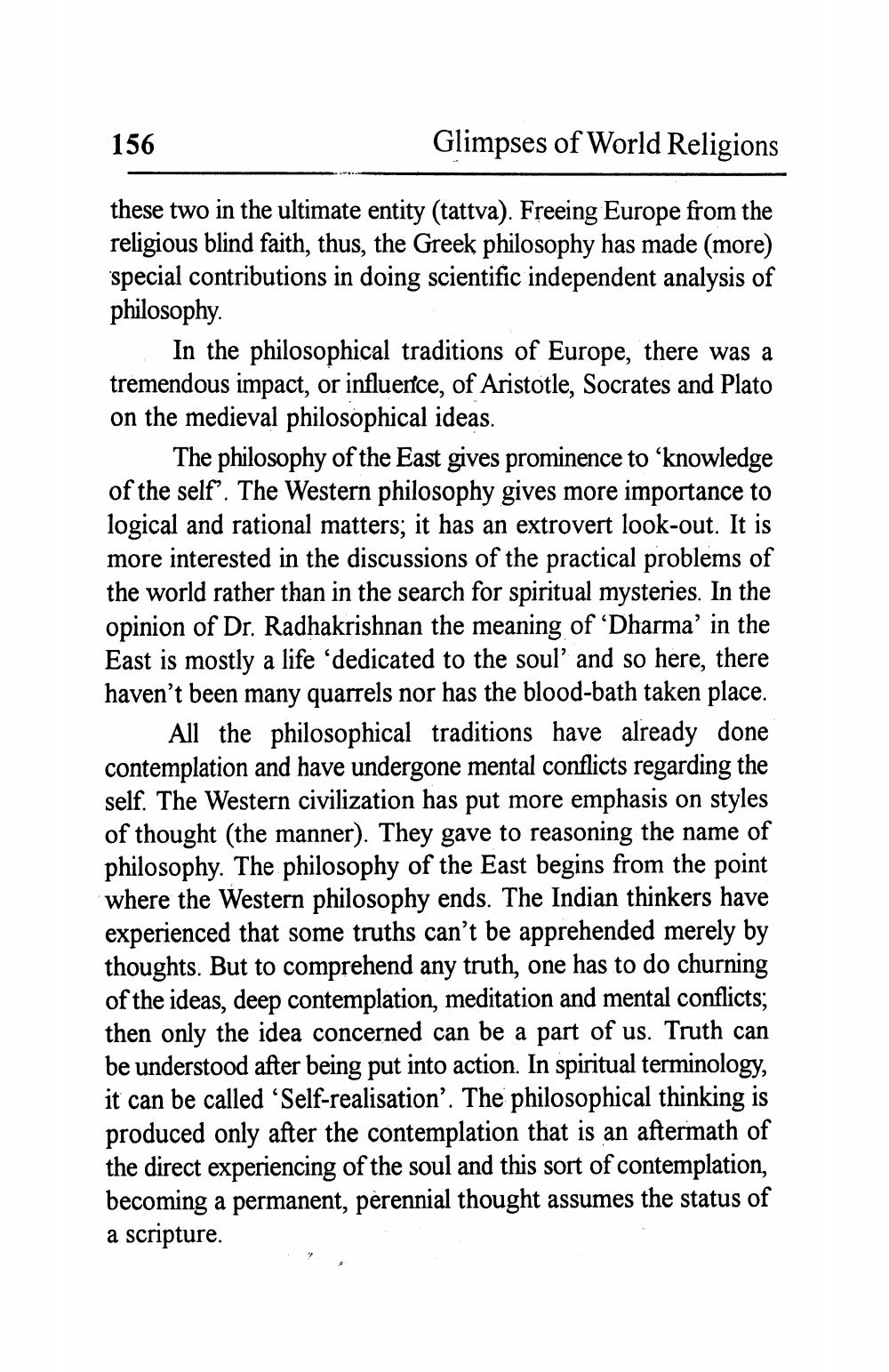________________
156
Glimpses of World Religions
these two in the ultimate entity (tattva). Freeing Europe from the religious blind faith, thus, the Greek philosophy has made (more) special contributions in doing scientific independent analysis of philosophy
In the philosophical traditions of Europe, there was a tremendous impact, or influence, of Aristotle, Socrates and Plato on the medieval philosophical ideas.
The philosophy of the East gives prominence to “knowledge of the self". The Western philosophy gives more importance to logical and rational matters; it has an extrovert look-out. It is more interested in the discussions of the practical problems of the world rather than in the search for spiritual mysteries. In the opinion of Dr. Radhakrishnan the meaning of 'Dharma' in the East is mostly a life 'dedicated to the soul and so here, there haven't been many quarrels nor has the blood-bath taken place.
All the philosophical traditions have already done contemplation and have undergone mental conflicts regarding the self. The Western civilization has put more emphasis on styles of thought (the manner). They gave to reasoning the name of philosophy. The philosophy of the East begins from the point where the Western philosophy ends. The Indian thinkers have experienced that some truths can't be apprehended merely by thoughts. But to comprehend any truth, one has to do churning of the ideas, deep contemplation, meditation and mental conflicts; then only the idea concerned can be a part of us. Truth can be understood after being put into action. In spiritual terminology, it can be called 'Self-realisation’. The philosophical thinking is produced only after the contemplation that is an aftermath of the direct experiencing of the soul and this sort of contemplation, becoming a permanent, perennial thought assumes the status of a scripture.




